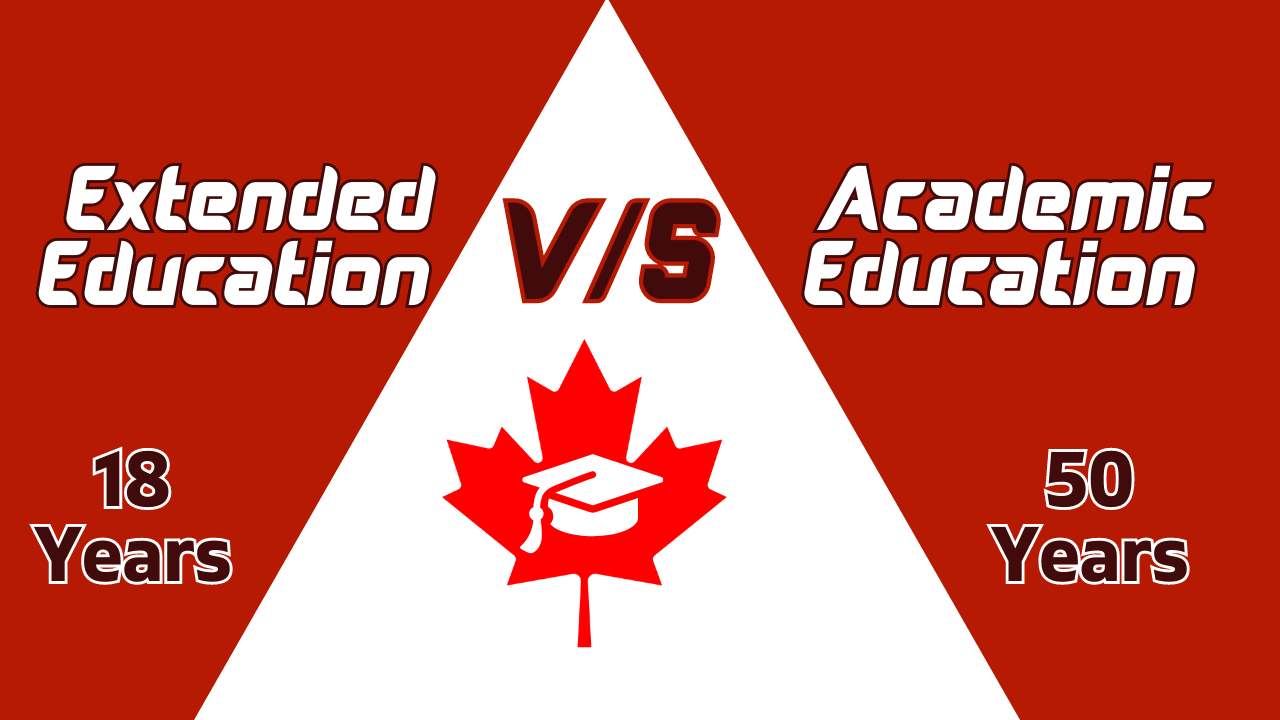
Extended education and academic education are two different types of education that can be pursued in Canada. Extended education is a non-credit program that provides students with the skills and knowledge they need to succeed in the workforce. Academic education is a credit program that leads to a degree or diploma.
There are many factors to consider when choosing between extended education and academic education. One factor is the cost. Extended education is typically less expensive than academic education. Another factor is the time commitment. Extended education programs can be completed in a shorter period of time than academic programs. Finally, you should consider your career goals. If you are not sure what you want to do after high school, extended education can give you the opportunity to explore different career options.
Benefits of Extended Education
There are many benefits to extended education. Extended education programs can help you:
- Develop new skills and knowledge
- Improve your job prospects
- Earn a higher salary
- Advance your career
- Become more competitive in the job market
- Meet new people and make new friends
- Learn new things and expand your horizons
Benefits of Academic Education
There are also many benefits to academic education. Academic programs can help you:
- Earn a degree or diploma
- Gain a deeper understanding of a particular subject
- Prepare for a specific career
- Develop critical thinking and problem-solving skills
- Improve your communication and writing skills
- Learn how to research and write papers
- Gain experience working on group projects
Which is Right for You?
The best way to decide which type of education is right for you is to consider your individual needs and goals. If you are not sure what you want to do after high school, extended education can be a good option. Extended education programs can help you explore different career options and develop the skills and knowledge you need to succeed in the workforce. If you know what you want to do after high school and you need a degree or diploma to get there, then academic education is the right choice for you.
No matter which type of education you choose, you will be well on your way to a successful future.
Here are some additional factors to consider when choosing between extended education and academic education:
- Your learning style: If you are a self-directed learner who prefers to learn at your own pace, then extended education may be a good fit for you. If you prefer to learn in a more structured environment with regular deadlines and assessments, then academic education may be a better choice.
- Your career goals: If you are not sure what you want to do after high school, extended education can give you the opportunity to explore different career options. If you know what you want to do after high school and you need a degree or diploma to get there, then academic education is the right choice for you.
- Your budget: Extended education is typically less expensive than academic education. However, there are many factors that can affect the cost of both types of education, such as the program you choose, the institution you attend, and the location of the institution.
- Your time commitment: Extended education programs can be completed in a shorter period of time than academic programs. However, you will need to make a commitment to attending classes or workshops and completing assignments. Academic programs typically require a longer time commitment, but you may have more flexibility in terms of when and where you take classes.
Ultimately, the best way to decide which type of education is right for you is to talk to your guidance counselor or a career advisor. They can help you assess your individual needs and goals and recommend the best path for you.
विनय हरी



